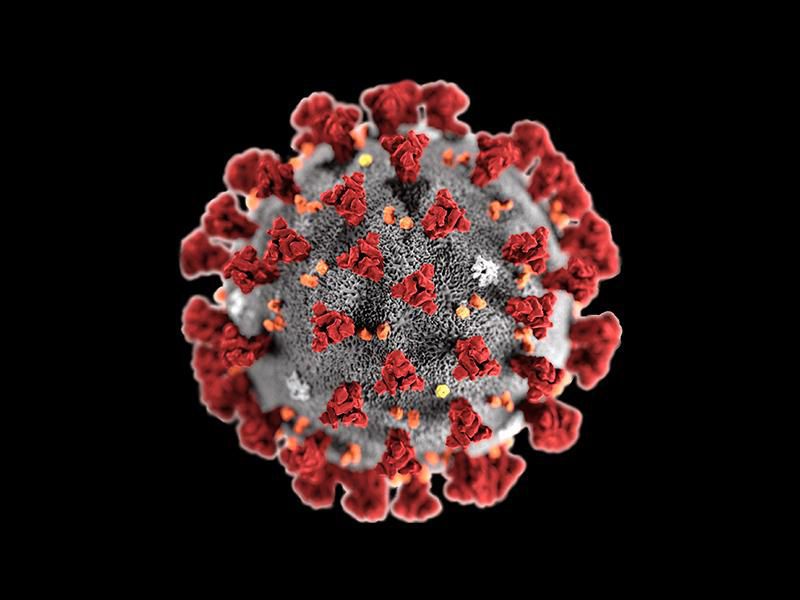On 25 March 2020, the Coronavirus Act 2020 was brought into force in response to the COVID-19 pandemic. The legislation was introduced under the government’s emergency temporary legislative powers, meaning that a reduced form of impact assessment was carried out. Contained within the Act’s wide ranging provisions, was the creation of new offences under section 44. While it is important to recognise that the statute is considered to be temporary legalisation (due to expire in two years’ time under section 89), and was enacted in exceptional circumstances while public services were subject to extraordinary strain, that does not mean we should ignore the ways in which power is being used and diffused in civil society during times of emergency.
Paragraph 23 of Schedule 21 created five new offences. They are:
- Failing, without reasonable excuse, to comply with any direction, reasonable instruction, requirement or restriction given to or imposed on the person under the potentially infectious persons provisions.
- Failing, without reasonable excuse, to comply with a duty in relation to a child to ensure compliance with an instruction, or failing to provide information and assistance that is reasonably practicable and necessary in the circumstances (para 18(1) and (2), Sch. 21).
- (Attempting to) abscond while being removed to or kept at a place under the potentially infectious persons provisions.
- Knowingly providing false or misleading information in response to a requirement to provide information under the potentially infectious person provisions, or otherwise in connection with the exercise of any power under the same provisions.
- Obstructing a person who is exercising, or attempting to exercise, a power conferred by the potentially infectious persons provisions in schedule 21.
There are also new offences of failing to comply with provisions about activities, and restricting movement and detention, found in the Health Protection Regulations 2020. All of those newly-created offences are summary only, meaning that they can only be dealt with in a magistrates’ court (the lowest tier of criminal court). The punishment that can be imposed is limited to a fine of up to £1000. The decision to make these offences summary only has a number of implications for both due process and open justice. Those implications include (but are not limited to) allowing the police (rather than the Crown Prosecution Service) to make decisions about whether a person should be charged and brought before the court, restricting access to legal advice and restricting scrutiny through principles of open justice.
In 2012, then Home Secretary Theresa May returned many charging decision powers to the police. The move was designed to reduce bureaucracy, and save time and money. In any event, the police had always had significant decision-making power in terms of deciding which suspects might be suitable for an out of court disposal (such as a caution) and who should be prosecuted through the courts.
News reports suggest that many coronavirus-related offences are indeed being dealt with by on-the-spot financial penalties, subject to no scrutiny whatsoever (unless contested by the recipient). The police are not obliged to consult Crown Prosecutors pre-charge in summary-only cases. It follows, therefore, that the police have considerable power when deciding whether or not to charge someone with a coronavirus-related offence. This leaves certain sections of the population – i.e. those who are more likely to come to the attention of the police with or without reasonable cause – more vulnerable to prosecution and punishment under the new laws.
It might be hoped that, if a person is unjustifiably brought to the attention of the court for a coronavirus-related offence, protective due process principles would be activated to prevent wrongful conviction. These include both access to independent legal advice (for free where the circumstances demand it) and public scrutiny though open justice. However, we see here that the realities of criminal justice mean that these principles might offer more in name than in experience. Changes to legal aid provision that have reduced access to justice, and the rules about eligibility for a duty solicitor (effectively a lawyer who is ‘on call’ to the court) both leave the new offences subject to limited scrutiny. Defendants who appear either in police custody or who are charged with an offence that is potentially imprisonable are automatically entitled to advice and representation from the duty solicitor free of charge. Prosecutors are told that defendants should not be remanded into custody if there is not a realistic prospect that the defendant would be sentenced to imprisonment on conviction.
As all of the new offences are non-imprisonable, and given the public health risks concerned, no suspect should be detained in custody awaiting case resolution, but that also means that the same people will not automatically be eligible for legal advice unless they can pass both the merits and means test for legal aid. Passing these tests is onerous and time consuming, and many people might simply be prepared to pay a fine to get proceedings over and done with, in much the same way as many people might be prepared to pay an on the spot fine simply to avoid the delay and risk involved in challenging the fine at court.
Part of a defence lawyer’s role is to examine whether the proceedings are properly brought. Without access to independent legal advice, we miss another layer of scrutiny about the way coronavirus-related offending is policed. So far, we know that there have been two miscarriages of justice connected to alleged coronavirus-related offending. One involved a woman who was fined £660 by the court, only for it later to be discovered that the police had misused their powers. The second was a man who pleaded guilty and was fined at Wimbledon Magistrates’ Court. It was later found that the corona-related offence had been misapplied in his case because he was not a potentially infectious person. Both convictions were later set aside, but only after the wrongful conviction had been imposed by the court. The first conviction was set aside after being questioned by legal professionals concerned about the way the police are exercising their powers, and the second after the Press Association made enquiries but how the police were using their new powers. Those enquiries also revealed that a number of on the spot fines had unlawfully been issued to people under the age of 17. This illustrates the important roles that both the legal profession and press can play in examining how effectively and appropriately the law is used.
Despite the fact that the press can play an important role in scrutinising the use of legal provisions, the press appear to be largely prevented from exercising that role in relation to the new offences. Understandably, many courts are no longer operating on a face to face basis, and those that do remain operational in person are used for cases in which urgent decision making is required, such as custodial decision-making or domestic violence applications. While many courts operated at least some proceedings on a virtual basis before the pandemic, the Coronavirus Act 2020 greatly extended the circumstances in which virtual hearings would take place.
Research has consistently shown that defendants who appear via videolink are less likely to be represented, and more likely to be sent to prison, than defendants who appear in person. Many commentators expressed concerns (examples here and here) that the move to conducting many more remote hearings would undermine principles of open justice and restrict the ability of the press to scrutinise our court and legal system. But this is even more acute in magistrates’ courts where justice reporting has already waned to very low levels, and where the courts – while set up to conduct hearings remotely between police stations, prisons and for witnesses – are not set up for live streaming or recording of proceedings.
Yet magistrates’ courts are well known to be the workhorse of the criminal justice system, dealing with over 90% of all criminal cases annually, and recall that all of the new coronavirus-related offences can only be dealt with in magistrates’ courts. In their work on virtual courts (including piloting a virtual trial), JUSTICE are clear that principles of open justice should not be damaged by the proceedings being conducted remotely, and advocated access to live streaming or access to transcripts of recordings. But proceedings in the magistrates’ courts are never audio recorded, and are not live streamed. Instead, reporters must rely either on attending the courts in person or on whatever information they can glean from court lists, from police press releases and – if persistent and thorough enough to pursue them – on notes made by a court clerk. Attending in person of course comes with its own risks, and the courts are (albeit understandably on one level) restricting public access.
THREAD on #OpenJustice concerns during #COVIDー19 👇
We have been trying to gain access to Mags court virtual public galleries for weeksEventually told to contact CVP.Highbury@justice.gov.uk to request link to hearings still on-going through video-conferencing in Highbury Mags
— APPEAL (@C4CrimAppeals) May 4, 2020
I know researchers who enquired about attending magistrates’ court proceedings for research purposes and were advised they should not do so, and Transform Justice’s Penelope Gibbs has tweeted about similar access issues (although there has been greater success in gaining access in the last day or so). Yet access to information about how coronavirus-related offending is being dealt with by the courts remains severely restricted.
The upshot is that it is very difficult to properly scrutinise how our courts are dealing with coronavirus-related offending. Of course, some might say that there are more important concerns at this time, and we do all have to recognise that public services are under particular pressure to keep the country’s infrastructure running. But we must also be careful not to ignore the challenges that emergency provisions bring, as complacency about such measures now makes it easier for due process and open justice principles to be undermined in future.







